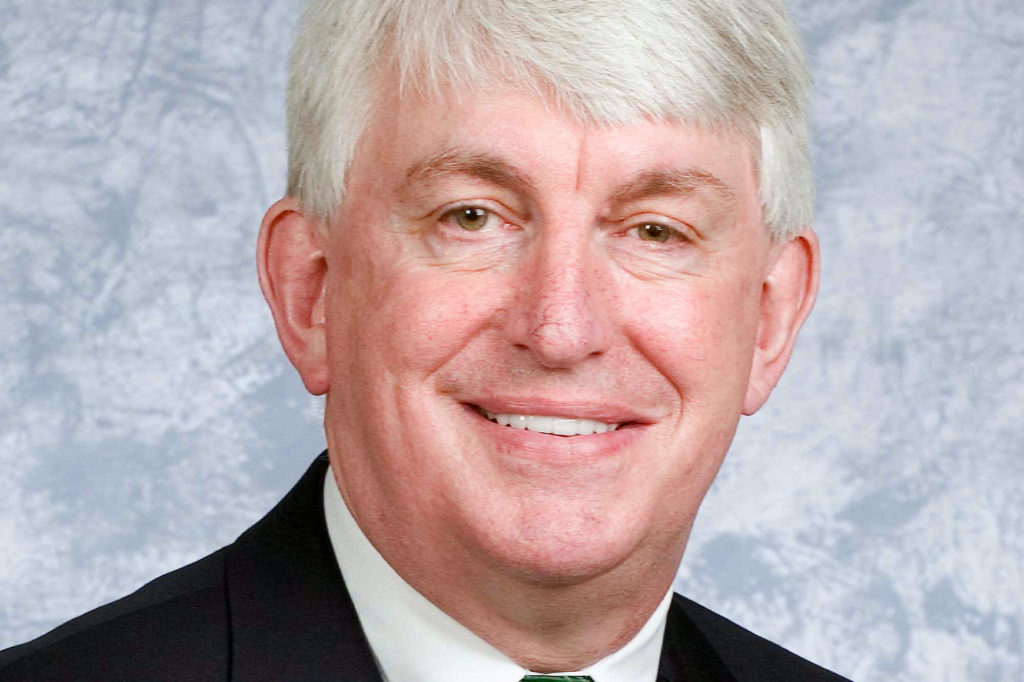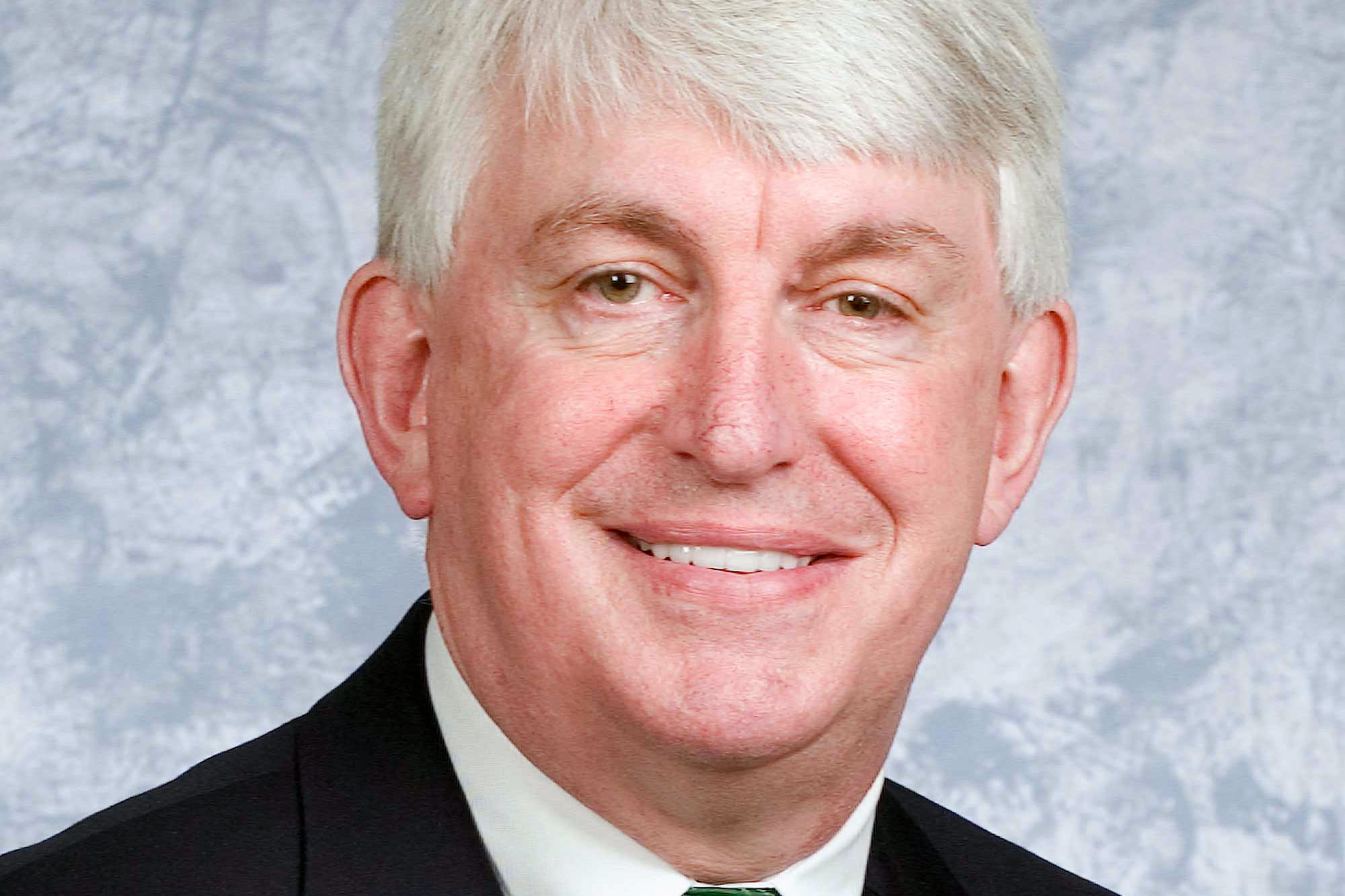
Courtesy of USF
By Nancy McCann
A wrinkle needs to be ironed out before the USF system Board of Trustees votes Dec. 3 on a key consolidation document that will be submitted to the regional accrediting agency in March.
At issue is the chain of command for the campus boards of St. Petersburg and Sarasota-Manatee. Campus board members are community leaders appointed to guide the mission of the campuses and serve as advocates to their communities.
The problem is one of inconsistency.
Florida law says that the St. Petersburg and Sarasota-Manatee campus boards have “the authority to approve and submit an annual operating plan, budget, and legislative budget request” to the trustees.
USF general counsel Gerard Solis told the trustees’ Governance Committee on Nov. 20 that having the campus boards report directly to the BOT is inconsistent with going from three separate accreditations to one.
Under the basic principles of the Southern Association of Colleges and Schools Commission on Colleges – known as SACS – campus boards are supposed to submit planning and budget materials to the president of the university, he said.
Language presented to the trustees by Solis to amend BOT operating procedures says the university president receives all campus board “recommendations, plans, request and budgets” and the president may “approve, reject or revise any portion” of the materials before submission to the trustees.
It also says that an original copy of the campus board materials submitted to the president will be provided to the Governance Committee for information purposes before the BOT takes action.
Solis said there is some risk in meeting the SACS requirements for single accreditation with the proposed wording.
“We don’t know how they (SACS) will perceive this language,” he said.
This is not the first time this subject has come up at a trustees meeting.
In September, when USF system President Steve Currall showed an organizational chart with the campus boards reporting to him, trustee Nancy Watkins said she was concerned this structure would violate state law.
The proposal to have campus board materials submitted by the president to the trustees after his approval, revision or rejection did not sit well with Watkins last week.
“We can undo a rejection. We cannot undo many approvals, as contracts will have been executed and things going on,” said Watkins.
Watkins said she prefers that the president be the official point of contact for the campus boards and recommend what the BOT should do.
Trustee Harold Mullis said he is also concerned about submitting information to SACS “which may have a fatal flaw” in it.
Some people in the audience looked surprised when Provost Ralph Wilcox explained what could happen if SACS doesn’t like the proposed reporting structure for the campus boards.
“The good news is that all three institutions are currently accredited by SACSCOC,” Wilcox said.
“So the fullest expectation is that if the (SACS) Board of Trustees does not bless, in advance, affirmatively our change prospectus, then we will revert to current accreditation status, meaning the three institutions will continue.”
He acknowledged that “this would be out of compliance with state law.”
Soon after hearing the scenario described by Wilcox, the trustees directed Solis to work on the language about campus board reporting requirements before the Dec. 3 meeting.
In a joint meeting of two BOT committees earlier that day, Wilcox mentioned what he thinks is another rough spot for consolidation: The university’s budget.
“What’s apparent as we wrestle with challenges to dismantle three institutions and rebuild into one is the need for one budget in one university,” he said. “It’s really challenging to have three or four separate budgets.”
He clarified that he has “no authority to determine how state appropriations” are sent to the university and “we have to be able to see transparently” money intended for any particular campus.
In 2019, the Florida Legislature required that St. Petersburg and Sarasota-Manatee – defined as branch campuses – have their own “budgetary authority” under consolidation, but the law doesn’t describe exactly what that entails.
What the law does specifically state is that “the Board of Trustees shall publish and approve an annual operating budget for each campus.”
The main purpose of the joint committee meeting was to review the consolidation document that will be sent to SACS. The full BOT will be asked to vote on the document – the Substantive Change Prospectus – at its Dec. 3 meeting.
The prospectus contains details vital to the consolidation of the three campuses, covering topics like governance structure, the roles of the regional chancellors, the reporting structure of the campus boards, the impact of consolidation on faculty workload, and commitment to student success.
Trustee Jordan Zimmerman, who serves as the BOT chair, wanted to know if he could “safely assume that President Currall” and Regional Chancellors Martin Tadlock and Karen Holbrook have approved the prospectus.
“It’s a fair assumption” that everyone on the Accreditation Steering Committee “has reviewed and approved the draft document you have before you,” Wilcox answered.
Tadlock, who is on that steering committee and was sitting in the front row of the audience, was not called on to respond to Zimmerman’s question.
Tadlock said in an interview the next day that “what I heard and saw yesterday in my opinion meets both the legislative intent and SACS expectations for one university.”
He said he did have the opportunity to edit the prospectus being prepared for submittal to SACS.
Another proposed amendment to the BOT’s operating procedures changes “Campus Boards” to “Campus Advisory Boards.”
In an interview on Nov. 27, history professor Ray Arsenault, president of the USFSP Faculty Senate, said “trustee Watkins is right” about the campus board issue.
“It’s fine for the (university) president to weigh in,” he said. “But if the president can reject or revise materials from the campus boards, it tends to diminish the reasons for having them.”



